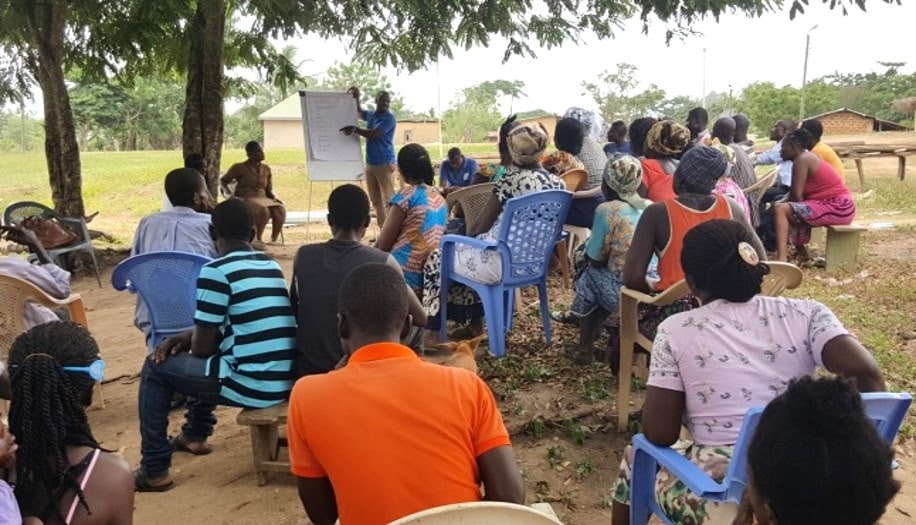Through participating in the program, I can now say that women in my community are no longer in the background.
Over the years, the Women Empowerment Program (WEP) has remained one of our key drivers in promoting participation for men and women in community development.
The program elevates the role of women across communities in areas such as nutrition, health, education and financial literacy. Through WEP, we are working with women to amplify their voices in their communities, to be decision-makers and to actively participate in their own development.
One of our partners, Rebecca, age 50, from Ehiamankyene Epicenter in Ghana, shares how participating in the program has enabled her to find her voice and become an advocate for women’s empowerment. She said, “I joined The Hunger Project-Ghana when they had a program called Women Empowerment Program in 2010. As a woman, I have always considered myself to only be backstage and only respond to the directives of men. This was the situation with many women in this area, as we have always lacked the confidence and skills to undertake any initiatives. Growing up, men were always the leaders and decision-makers, providing for the needs of the home.”
The WEP workshop gave her a totally different orientation about the ideal relationship that should exist between women and men. She feels “empowered to run our own businesses, participate in decision-making at both the household and community levels and take part in leadership activities.”
National statistics in Ghana indicate that there is still a high bar to entry for women into leadership positions, meaning that voices and experiences of women like Rebecca are sometimes not represented. WEP seeks to support women to reach their full potential to participate in governance systems.
According to the UNDP (2022), out of Ghana’s 275 members of parliament, only 40 are women; out of the 86 current ministerial positions only 18 are women; and out of the current 261 Metropolitan, Municipal and District Chief Executives (MMDCEs), only 38 are women. To reach gender equality by 2030, more women need to participate in governance systems at all levels and leadership roles both in the public and private sector.
Rebecca also stated that participating in the program enabled her to realize financial independence, and that she no longer had to rely on her husband to support her family and her children’s education.
The Meaningful Access Project
We use the Women Empowerment Index Score (WEI) to measure women’s empowerment across five domains:Agency, Income, Leadership, Resources and Time. Ehiamankyene Epicenter has reached self-reliance and its WEI score was 86.24%, demonstrating active participation of women in their community development. The result demonstrates how the Ehiamankyene community is supporting gender-centered sustainable development and elevating the voices of women.
Women play a critical role in creating healthier, resilient and sustainable communities, their voices and actions are vital to realizing the 2030 Sustainable Development Goals. To achieve gender equality, it is necessary to invest in women’s engagement in corporate, civic and political life. Their involvement promotes inclusive development, gender equality and has an impact on diversity and inclusion policies.
Invest in Women.
Learn about what we do for Gender Equality, Empowered Girls and Ending Hunger.
Image: Particpants in Women Empowerment Program in Ghana 2022
Photo for The Hunger Project

